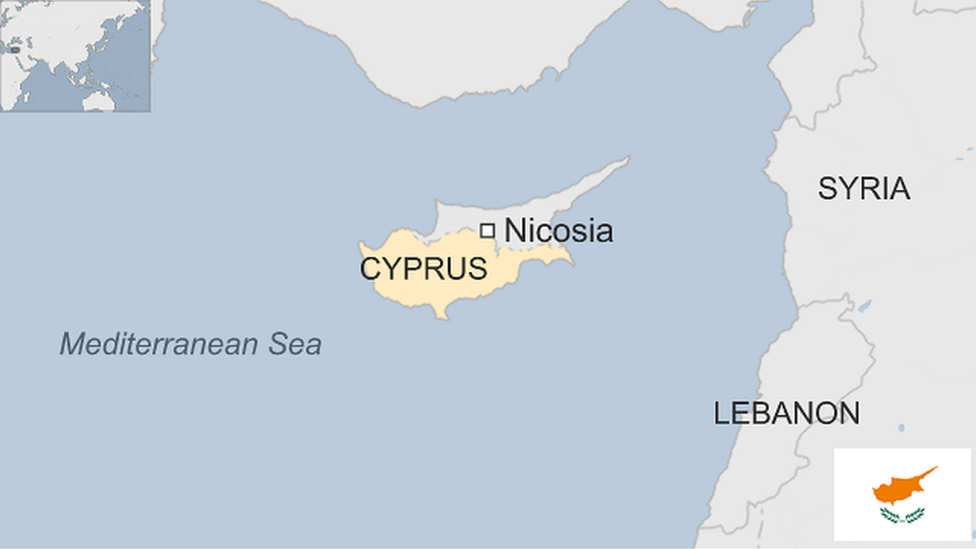Cyprus reunification talks resume after 18-month break
- Published
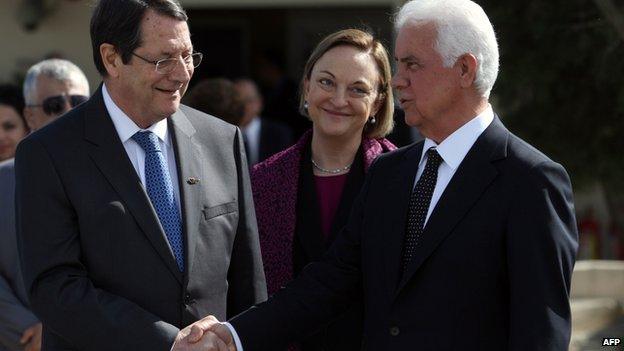
Cypriot President Nicos Anastasiades (l) met Turkish Cypriot leader Dervis Eroglu inside the UN buffer zone
The Turkish and Greek Cypriot leaders say they want to end the island's division "as soon as possible" after resuming reunification talks.
Greek Cypriot leader Nicos Anastasiades met his Turkish Cypriot counterpart Dervis Erogluy at a UN compound in the capital Nicosia.
The previous round of negotiations had stalled in mid-2012.
Cyprus split after a coup in 1974 that was aimed at uniting the island with Greece, sparking a Turkish invasion.
Speaking after the one-hour meeting, the two leaders said the status quo in Cyprus was "unacceptable".
In a joint statement, they said that a settlement would have a "positive impact" on the entire region.
Resident UN envoy on the island Lisa Buttenheim said: "The leaders expressed their determination to resume structured negotiations in a results-oriented manner".
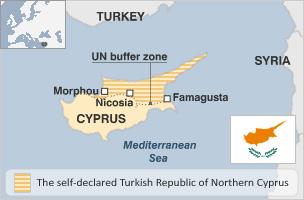
UN Secretary-General Ban Ki-Moon praised the meeting, calling it "an important statement of shared principles and an invaluable basis for renewed talks".
Turkish Prime Minister Recep Tayyib Erdogan also expressed hope that the talks would lead to a breakthrough.
"We are heading toward a new process in Cyprus. God willing, there will be no backpedalling and we will solve the Cyprus problem," the Turkish leader said.
Buffer Zone
In 1974 the island was effectively partitioned, with the northern third controlled by Turkish Cypriots and the southern two-thirds by Greek Cypriots.
The Turkish-held area declared itself the Turkish Republic of Northern Cyprus in 1983. It is only recognised by Turkey.
A UN Buffer Zone - the Green Line - divides the sectors, including Nicosia.
Tuesday's meeting took place within the buffer zone, at the disused Nicosia International Airport.
The last talks were suspended when Cyprus assumed the rotating presidency of the European Union in 2012.
The government in Nicosia had also been hampered by the need to secure an international bailout sparked by the eurozone debt crisis, analysts say.
The recent discovery of offshore oil and gas reserves may provide an added incentive for progress on a peace deal.
Cyprus's international lenders said on Tuesday the island state's economic programme remains on track but "the outlook remains challenging".
- Published14 January 2014
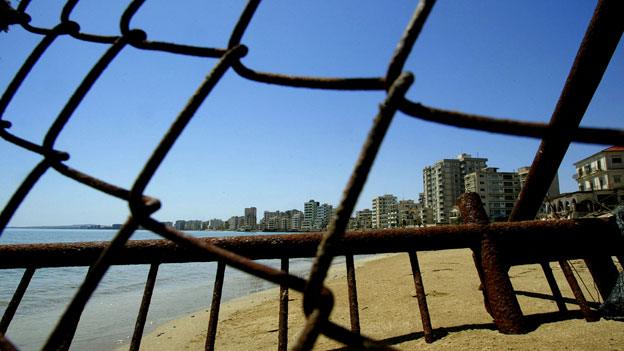
- Published28 March 2013
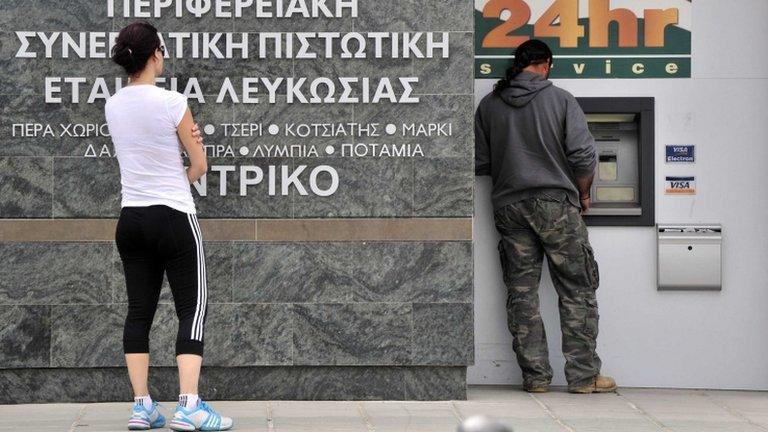
- Published7 April 2023
